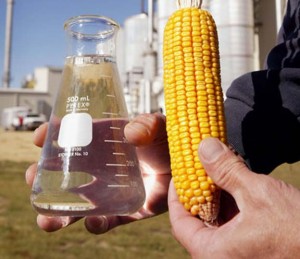Following up on a controversial decision, last October, requiring the increased use of corn-based ethanol in gasoline by relatively new cars, trucks and crossovers, the Environmental Protection Agency has expanded that ruling to include models dating back to 2001.
The move is expected to generate even more opposition – and potential legal efforts to block the decision. If allowed the stand, roughly two-thirds of all cars on the road will soon be using E15, rather than older E10 fuel.
The EPA’s announcement, last October, took a Solomon-like stand, calling for the switch to E15 – which is made up of 15% alcohol and 85% gasoline – for cars produced since 2007. The agency delayed a decision on older models pending further studies to see if the higher ethanol content might result in damage to fuel tanks, fuel lines or engines. After determining E15 was safe, EPA regulators decided to expand its use for models produced as far back as 2001.
But the debate is certain to continue. In December, a coalition of automakers signed on to participate in a lawsuit aimed at blocking the switch to E15. Along with marine engine and power tool makers, they contend that the increased level of alcohol, a corrosive, may damage older vehicles not intentionally modified for its use.
(For more on the industry lawsuit, Click Here.)
The industry’s position is not without irony, as many makers, notably including General Motors, have been arguing for expanded use of E85, a fuel that is 85% ethanol and only 15% gasoline. But that bio-fuel is intended solely for so-called “flex-fuel” vehicles that have been specifically modified to withstand the corrosive effects of ethanol. Among other things, that requires the use of stainless steel fuel lines.
The EPA has been under heavy pressure to get Americans to use more ethanol. Congress has mandated that refiners blend in at least 36 billion gallons of the alcohol by 2022. Whether that can be achieved is uncertain considering the industry fell short of the 2010 mandate of 11 billion gallons.
Proponents claim ethanol will help the nation sharply reduce its dependence on foreign oil. Skeptics contend that alcohol-based fuels actually reduce a vehicle’s mileage. And they contend that the push for ethanol has more to do with the demands of farm state lobbyists than any real environmental or geo-political issues.


Not a very good move to say the least. With a fragile economy and over 4000 products in any grocery store at a given time which have the contents of the products made of or from corn, I see inflation of food prices rising. Then again, the Obama regime really doesn’t care about the taxpayers money anyhow!
Great, less MPG and a rise in food prices, just what we need. NOT!